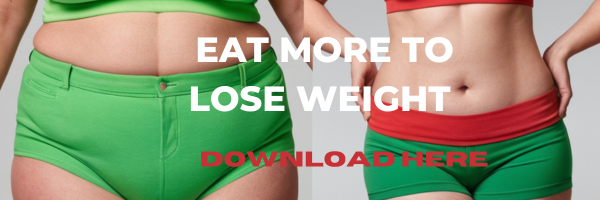Did you know that when you engage in intense physical activity while following a keto diet, you may experience an increase in sweat production? This phenomenon is often referred to as “Keto Sweat Sessions” and has become a popular topic of discussion among those on the ketogenic diet.
The ketogenic diet, which involves consuming high amounts of fats, moderate protein, and low carbohydrates, has gained significant attention in recent years for its potential health benefits, including weight loss and improved energy levels. When combined with vigorous exercise, such as high-intensity interval training or weightlifting, the body may enter a state of ketosis where it relies on fat for fuel instead of carbs.
As a result of this metabolic shift, the body may produce more sweat during workouts to regulate its temperature and eliminate waste products. This increase in sweat production can be alarming for some individuals, leading them to wonder if they are doing something wrong or if their body is not adapting well to the keto diet.
One way to manage excessive sweating during Keto Sweat Sessions is to stay hydrated and replenish electrolytes lost through sweat. Electrolytes play a crucial role in regulating fluid balance and muscle function, so it is essential to maintain a proper balance to prevent dehydration and muscle cramps. In fact, research has shown that a lack of electrolytes can contribute to increased sweating and decreased exercise performance.
By understanding the connection between the ketogenic diet, intense exercise, and sweat production, individuals can better navigate their fitness journey while on a low-carb eating plan. Staying informed about the potential side effects of Keto Sweat Sessions and implementing strategies to mitigate them can help optimize performance and overall well-being.
Why Do Keto Sweat Sessions Make You Sweat More and What Does It Mean?
When following a ketogenic diet and engaging in sweat sessions, you may find yourself perspiring more than usual. This increased sweating is a common phenomenon associated with the body’s transition to using ketones for fuel instead of glucose. It can be a sign that your body is adapting to burning fat for energy more efficiently. To learn more about why this happens and what it means for your keto journey, continue reading below.
Reasons for Increased Sweating on the Keto Diet
When you start a keto diet, your body goes through a process called ketosis, where it starts burning fat for fuel instead of carbohydrates. This metabolic state can lead to increased sweating for several reasons.
1. Increased Metabolism
When you are in ketosis, your metabolism speeds up as your body works harder to break down fat for energy. This increased metabolic rate can cause your body temperature to rise, leading to more sweat production.
2. Electrolyte Imbalance
On a keto diet, you may experience an imbalance in electrolytes, specifically sodium, potassium, and magnesium. This imbalance can affect your body’s ability to regulate its temperature, leading to excessive sweating.
3. Detoxification Process
As your body transitions into ketosis, it goes through a detoxification process, where it eliminates toxins and waste products. Sweating is one way your body gets rid of these toxins, leading to increased perspiration.
What Increased Sweating Means on the Keto Diet
While sweating more on the keto diet may be bothersome, it is generally a sign that your body is adapting to the metabolic changes brought about by ketosis. It can also be a positive indication that you are burning fat and losing weight.
1. Fat Burning
Increased sweating on the keto diet can be a sign that your body is effectively burning fat for energy. As your metabolism speeds up and you enter ketosis, your body becomes more efficient at using stored fat as fuel, leading to weight loss.
2. Detoxification
Excessive sweating can also indicate that your body is eliminating toxins and waste products through your skin. This detoxification process is essential for overall health and well-being, and sweating is a natural way for your body to expel these harmful substances.
3. Electrolyte Balance
If you are sweating more on the keto diet, it may be a sign that you need to replenish your electrolytes to maintain proper balance. Consuming foods rich in sodium, potassium, and magnesium can help prevent electrolyte imbalances and reduce excessive sweating.
According to a study published by the International Journal of Environmental Research and Public Health, ketogenic diet-induced weight loss leads to increased thermic effect and resting energy expenditure, which may contribute to increased sweat production (source: https://www.ncbi.nlm.nih.gov/pmc/articles/PMC6520680/).
Why do I sweat more on the keto diet?
It is common to experience increased sweating when following a ketogenic diet due to the body’s shift in energy sources. In ketosis, the body burns fat for fuel instead of carbohydrates, leading to an increase in metabolic rate and heat production, which can result in more sweating during workouts.
Is excessive sweating a sign of dehydration on keto?
While sweating more on the keto diet can lead to increased fluid loss, it does not necessarily indicate dehydration. It is important to stay properly hydrated by drinking plenty of water throughout the day, especially before, during, and after exercise to replace lost fluids.
How can I manage excessive sweating on the keto diet?
To help manage excessive sweating on the keto diet, make sure to stay hydrated, wear moisture-wicking clothing during workouts, and use antiperspirant to control sweat production. Additionally, taking electrolyte supplements can help replenish lost minerals through sweating.
Can keto supplements help reduce sweating?
While there are no specific keto supplements that can directly reduce sweating, certain electrolyte supplements containing sodium, potassium, and magnesium can help maintain electrolyte balance and prevent excessive sweating on the keto diet.
When should I be concerned about excessive sweating on keto?
If you experience symptoms such as dizziness, fatigue, rapid heart rate, or extreme thirst along with excessive sweating on the keto diet, it is important to consult a healthcare professional as it may indicate an electrolyte imbalance or underlying health issue that needs to be addressed.
Conclusion
In conclusion, the increase in sweat production during keto sweat sessions can be attributed to several factors. Firstly, the body’s need to cool down as it burns fat for fuel at a higher rate than usual leads to more sweating. Additionally, the reduction in glycogen stores and water retention on a ketogenic diet can also contribute to increased sweating. It is important to stay hydrated and replenish electrolytes to maintain optimal performance and prevent dehydration during intense workouts on a keto diet.
Furthermore, sweating more during exercise on a keto diet can be a positive sign that the body is adapting to using fat as its primary source of energy. Embracing the sweat and knowing that it is a natural response to the metabolic changes taking place can help individuals stay motivated and committed to their fitness goals. By understanding the reasons behind increased sweat production on a keto diet, individuals can better tailor their workouts and nutrition to support their overall health and wellness journey.


